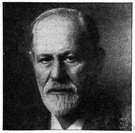depth psychology
Also found in: Thesaurus, Medical, Encyclopedia, Wikipedia.
depth psychology
n.
1. Psychology of the unconscious mind.
2. Psychoanalysis.
American Heritage® Dictionary of the English Language, Fifth Edition. Copyright © 2016 by Houghton Mifflin Harcourt Publishing Company. Published by Houghton Mifflin Harcourt Publishing Company. All rights reserved.
depth psychology
n
(Psychology) psychol the study of unconscious motives and attitudes
Collins English Dictionary – Complete and Unabridged, 12th Edition 2014 © HarperCollins Publishers 1991, 1994, 1998, 2000, 2003, 2006, 2007, 2009, 2011, 2014
depth′ psychol`ogy
n.
any approach to psychology that explains personality in terms of unconscious processes.
[1925–30]
Random House Kernerman Webster's College Dictionary, © 2010 K Dictionaries Ltd. Copyright 2005, 1997, 1991 by Random House, Inc. All rights reserved.
ThesaurusAntonymsRelated WordsSynonymsLegend:
Switch to new thesaurus
| Noun | 1. |  depth psychology - a set of techniques for exploring underlying motives and a method of treating various mental disorders; based on the theories of Sigmund Freud; "his physician recommended psychoanalysis" depth psychology - a set of techniques for exploring underlying motives and a method of treating various mental disorders; based on the theories of Sigmund Freud; "his physician recommended psychoanalysis"psychotherapy - the treatment of mental or emotional problems by psychological means hypnoanalysis - the use of hypnosis in conjunction with psychoanalysis anal personality, anal retentive personality - (psychoanalysis) a personality characterized by meticulous neatness and suspicion and reserve; said to be formed in early childhood by fixation during the anal stage of development (usually as a consequence of toilet training) genital personality - (psychoanalysis) the mature personality which is not dominated by infantile pleasure drives oral personality - (psychoanalysis) a personality characterized either by generous optimism or aggressive and ambitious selfishness; formed in early childhood by fixation during the oral stage of development ego - (psychoanalysis) the conscious mind superego - (psychoanalysis) that part of the unconscious mind that acts as a conscience id - (psychoanalysis) primitive instincts and energies underlying all psychic activity introjection - (psychoanalysis) the internalization of the parent figures and their values; leads to the formation of the superego pleasure principle, pleasure-pain principle, pleasure-unpleasure principle - (psychoanalysis) the governing principle of the id; the principle that an infant seeks gratification and fails to distinguish fantasy from reality reality principle - (psychoanalysis) the governing principle of the ego; the principle that as a child grows it becomes aware of the real environment and the need to accommodate to it introject - (psychoanalysis) parental figures (and their values) that you introjected as a child; the voice of conscience is usually a parent's voice internalized ego ideal - (psychoanalysis) the part of the ego that contains an ideal of personal excellence toward which a person strives imago - (psychoanalysis) an idealized image of someone (usually a parent) formed in childhood condensation - (psychoanalysis) an unconscious process whereby two ideas or images combine into a single symbol; especially in dreams transference - (psychoanalysis) the process whereby emotions are passed on or displaced from one person to another; during psychoanalysis the displacement of feelings toward others (usually the parents) is onto the analyst latent content - (psychoanalysis) hidden meaning of a fantasy or dream complex - (psychoanalysis) a combination of emotions and impulses that have been rejected from awareness but still influence a person's behavior libido - (psychoanalysis) a Freudian term for sexual urge or desire penis envy - (psychoanalysis) a female's presumed envy of the male's penis; said to explain femininity libidinal energy - (psychoanalysis) psychic energy produced by the libido cathexis, charge - (psychoanalysis) the libidinal energy invested in some idea or person or object; "Freud thought of cathexis as a psychic analog of an electrical charge" acathexis - (psychoanalysis) a lack of cathexis; a condition in which significant objects or memories arouse no emotion in an individual psychosexual development - (psychoanalysis) the process during which personality and sexual behavior mature through a series of stages: first oral stage and then anal stage and then phallic stage and then latency stage and finally genital stage anaclisis - (psychoanalysis) relationship marked by strong dependence on others; especially a libidinal attachment to e.g. a parental figure castration anxiety - (psychoanalysis) anxiety resulting from real or imagined threats to your sexual functions; originally applied only to men but can in principle apply to women anal phase, anal stage - (psychoanalysis) the second sexual and social stage of a child's development during which bowel control is learned genital phase, genital stage - (psychoanalysis) the fifth sexual and social stage in a person's development occurring during adolescence; interest focuses on sexual activity latency period, latency phase, latency stage - (psychoanalysis) the fourth period (from about age 5 or 6 until puberty) during which sexual interests are supposed to be sublimated into other activities oral phase, oral stage - (psychoanalysis) the first sexual and social stage of an infant's development; the mouth is the focus of the libido and satisfaction comes from suckling and chewing and biting phallic phase, phallic stage - (psychoanalysis) the third stage in a child's development when awareness of and manipulation of the genitals is supposed to be a primary source of pleasure abreact - discharge bad feelings or tension through verbalization anal retentive, anal - a stage in psychosexual development when the child's interest is concentrated on the anal region; fixation at this stage is said to result in orderliness, meanness, stubbornness, compulsiveness, etc. oral - a stage in psychosexual development when the child's interest is concentrated in the mouth; fixation at this stage is said to result in dependence, selfishness, and aggression |
Based on WordNet 3.0, Farlex clipart collection. © 2003-2012 Princeton University, Farlex Inc.